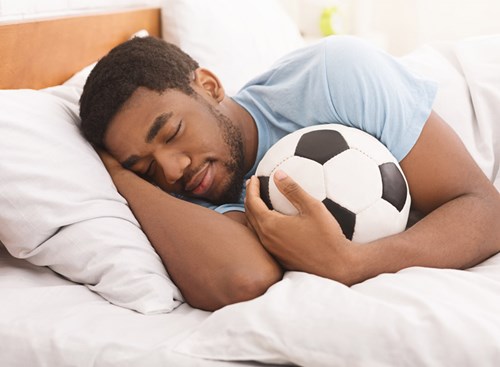
How a Better Bedtime Routine Could Improve Your Athletic Performance
Whether you’re an on-the-go professional, a stay-at-home caretaker or a student-athlete like Hawaii volleyball player Brooke Van Sickle, it is likely no surprise to hear that sleep is essential for a person’s health and well-being.
However, you may be surprised to learn just how many components of life are negatively impacted by continued lack of sleep. For example, insufficient amounts of sleep negatively affect cognitive function, learning, memorization, reaction time, auditory awareness and mood. Lack of quality sleep also affects metabolism, hormonal function and how individuals perceive exhaustion.
Many studies have shown that sleep deprivation negatively impacts physical and cognitive function.
For example, a study at Stanford’s Sleep Disorder Clinic and Research Laboratory looked specifically at the impact of sleep quality on Stanford student-athletes.
The study explored the negative effects of poor quality sleep on mental function, physical ability and overall sports performance.
Researchers reported that many student-athletes were not getting good quality sleep, with the following findings:
- 42% experienced poor sleep quality.
- 40% met the standard sleep recommendation of seven hours or more per night.
- 51% felt excessively sleepy during the day.

According to experts, this high prevalence of poor sleep, lack of sleep and daytime sleepiness reveals the major problems that poor sleep quality has on athletes’ health and well-being. These include increased risk of injury, mental or emotional distress, and decreased overall athletic performance.
Additional studies have shown that sleeping for only five to seven hours a week decreased reaction times and increased sleepiness during the day of student-athletes by 42%.
Collegiate tennis players who were originally sleep deprived had a 35.7% serving accuracy. However, they were able to improve their serving accuracy by 6.1% after getting more sleep.
Sleep-deprived basketball players who also were given more time to sleep showed improvement in athletic performance by achieving 0.7-second faster sprint times, 9% increase in free throw success, and 9% increase in making 3-point shots.
Studies such as these highlight the need for athletes at all levels to get the recommended amount of sleep. When coaches and athletes emphasize proper sleep and recovery practices, it not only optimizes athletic performance, but it also stresses the importance of their overall health and well-being.
Watch the video for six tips to get better sleep that have helped Van Sickle stay at the top of her game.
- Exercise during the day.
- Refrain from caffeinated foods or drinks before bed.
- Create a relaxing bedtime routine, including a consistent bedtime and wake time.
- Have a good sleep environment (dark, cool, quiet).
- Remove light and electronic devices from the bedroom before sleeping.
- Expose yourself to bright sunlight in the morning.
Another helpful tip is to take steps to clear your head before bedtime. Make time to do things that help you to relax, such as breathing exercises, listening to music or reading.
Published on: May 12, 2022




